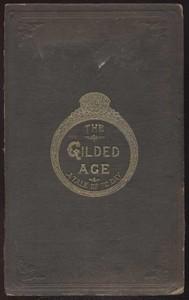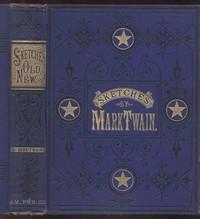Read this ebook for free! No credit card needed, absolutely nothing to pay.
Words: 162082 in 76 pages
This is an ebook sharing website. You can read the uploaded ebooks for free here. No credit cards needed, nothing to pay. If you want to own a digital copy of the ebook, or want to read offline with your favorite ebook-reader, then you can choose to buy and download the ebook.


: The Diary and Letters of Madame D'Arblay — Volume 1 by Burney Fanny - Novelists English 19th century Correspondence; Burney Fanny 1752-1840 Diaries; Burney Fanny 1752-1840 Correspondence; Novelists English 18th century Correspondence; Novelists English 1
PREFACE
MADAME D'ARBLAY, by Lord Macaulay
PREFACE
"The Diary and Letters of Madame D'Arblay," edited by her niece, Mrs. Barrett, were originally published in seven volumes, during the years 1842-1846. The work comprised but a portion of the diary and voluminous correspondence of its gifted writer, for the selection of which Madame D'Arblay, herself in part, and in part Mrs. Barrett, were responsible. From this selection the present one has been made, which, it is believed, will be found to include all the most valuable and interesting passages of the original. We can at least claim for this, the first popular edition of the Diary, that we have scrupulously fulfilled Madame D'Arblay's injunction to her former editor, "that whatever might be effaced or omitted, nothing should in anywise be altered or added to her records."
Of the Diary itself it is hardly necessary here to say anything in praise. It has long been acknowledged a classic; it is indubitably the most entertaining, in some respects the most valuable, work of its kind in the English language, Regarded as a series of pictures of the society of the time, the Diary is unsurpassed for vivid Colouring and truthful delineation. As such alone it would possess a strong claim upon our attention, but how largely is our interest increased, when we find that the figures which fill the most prominent positions in the foreground of these pictures, are those of the most noble, most gifted, and Most distinguished men of the day! To mention but a few.
MADAME D'ARBLAY, BY LORD MACAULAY.
Frances Burney was descended from a family which bore the name of Macburney, and which, though probably of Irish origin, had been long settled in Shropshire and was possessed of considerable estates in that county. Unhappily, many years before her birth, the Macburneys began, as if of set purpose and in a spirit of determined rivalry, to expose and ruin themselves. The heir apparent, Mr. James Macburney offended his father by making a runaway match with an actress from Goodman's-fields--The old gentleman could devise no more judicious mode of wreaking vengeance on his undutiful boy than by marrying the cook. The cook gave birth to a son, named Joseph, who succeeded to all the lands of the family, while James was cut off with a shilling. The favourite son, however, was so extravagant that he soon became as poor as his disinherited brother. Both were forced to earn their bread by their labour. Joseph turned dancing-master and settled in Norfolk. James struck off the Mac from the beginning of his name and set up as a portrait painter at Chester. Here he had a son, named Charles, well known as the author of the "History of Music" and as the father of two remarkable children, of a son distinguished by learning and of a daughter still more honourably distinguished by genius.
Charles early showed a taste for that art of which, at a later period, he became the historian. He was apprenticed to a celebrated musician in London, and he applied himself to study with vigour and success. He early found a kind and munificent Patron in Fulk Greville, a highborn and highbred man, who seems to have had in large measure all the accomplishments and all the follies, all the virtues and all the vices, which, a hundred years ago, were considered as making up the character of a fine gentleman. Under such protection, the young artist had every prospect of a brilliant career in the capital. But his health failed. It became necessary for him to retreat from the smoke and river fog of London to the pure air of the coast. He accepted the place of organist at Lynn, and settled at that town with a young lady who had recently become his wife.
At Lynn, in June, 1752, Frances Burney was born. Nothing in her childhood indicated that she would, while still a young woman, have secured for herself an honourable and permanent place among English writers. She was shy and silent. Her brothers and sisters called her a dunce, and not altogether without some show of reason; for at eight years old she did not know her letters.
In 1760, Mr. Burney quitted Lynn for London, and took a house in Poland-street; a situation which had been fashionable in the reign of Queen Anne, but which, since that time, had been deserted by most of its wealthy and noble inhabitants. He afterwards resided in St. Martin's--street, on the south side of Leicestersquare. His house there is still well known, and will continue to be well known as long as our island retains any trace of civilisation; for it was the dwelling of Newton, and the square turret which distinguishes it from all the surrounding buildings was Newton's observatory.
Mr. Burney at once obtained as many pupils of the most respectable description as he had time to attend, and was thus enabled to support his family, modestly indeed, and frugally, but in comfort and independence. His professional merit obtained for him the degree of Doctor of Music from the University of Oxford; and his works on subjects connected with art gained for him a place, respectable, though certainly not eminent, among men of letters.
The progress of the mind of Frances Burney, from her ninth to her twenty-fifth year, well deserves to be recorded, When her education had proceeded no further than the hornbook, she lost her mother, and thenceforward she educated herself. Her father appears to have been as bad a father as a very honest, affectionate and sweet-tempered man can well be. He loved his daughter dearly; but it never seems to have occurred to him that a parent has other duties to perform to children than that of fondling them. It would indeed have been impossible for him to superintend their education himself. His professional engagements occupied him all day. At seven in the morning, he began to attend his pupils, and, when London was full, was sometimes employed in teaching till eleven at night. He was often forced to carry in his pocket a tin box of sandwiches and a bottle of wine and water, on which he dined in a hackney coach while hurrying from one scholar to another. Two of his daughters he sent to a seminary at Paris; but he imagined that Frances would run some risk of being perverted from the Protestant faith if she were educated in a Catholic country, and he therefore kept her at home. No governess, no teacher of any art or of any language was provided for her. But one of her sisters showed her how to write; and, before she was fourteen, she began to find pleasure in reading.
Free books android app tbrJar TBR JAR Read Free books online gutenberg
More posts by @FreeBooks


: The Gilded Age Part 7. by Twain Mark Warner Charles Dudley - Satire; Political fiction; Washington (D.C.) Fiction; Legislators Fiction; Speculation Fiction; Political corruption Fiction; Businessmen Fiction






